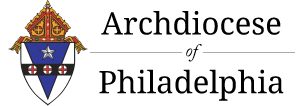More than 50 years have passed since Martin Luther King Jr. stepped into America’s racial divide of the 1950s and 1960s. Although that divide has eased in some important ways, recent events show that much remains to be done. This month’s observance of Martin Luther King Day, January 19, therefore comes at a key moment. We should take advantage of it by reflecting on why King’s efforts to fight racial injustice bore such good fruit, and what his witness means for the United States today. It’s a moment for those of us who are Christians to reexamine our own lives in light of the Gospel, and to ground ourselves again in the same Word of God that gave Martin Luther King the courage and perseverance to seek healing where sin had wrought racial conflict.
King believed that in matters of race, America ought to be what it claims to be. He took seriously the insistence of the Declaration of Independence “that all men are created equal, that they are endowed by their Creator with certain unalienable Rights” For King, that wasn’t a pious throwaway line used by the Founders to motivate the masses. He instead saw it as a true statement about who we are as children of a loving God, and he rightly demanded America’s fidelity to its own founding. “We have waited for more than 340 years for our constitutional and God given rights,” he remarked in a letter written in a Birmingham jail. Rooted in his own Christian formation, he committed his life to finally winning those rights.
Over the past half century, a wide variety of movements for social justice have borrowed from King’s example, including the annual March for Life. One of the “certain unalienable Rights” listed in the Declaration is indeed the right to life, and for many Americans, it’s richly ironic that we celebrate Martin Luther King Day just three days before the anniversary of the Supreme Court’s disastrous Roe v. Wade decision.
This simply underscores the integrity of King’s witness and its power to appeal across even the sharpest political differences. King chose peaceful resistance and a spirit of charity when confronted with unjust laws that discriminated against a certain class of citizens. That witness endures. In a 1957 sermon, he memorably exhorted his listeners to remember that “[d]arkness cannot drive out darkness: Only light can do that. Hate cannot drive out hate: Only love can do that.” King understood that hatred is cheap and easy, and always destructive. The purest example of real love is, of course, the cross. Treated with violence and contempt, Jesus Christ bore his sufferings out of love for even the worst sinners. In the Gospel, we find the model for all of us as Christians to follow in our lives. Loving resistance towards those who do evil is often the hardest path to take, but in the long run, its power is enormous.
In a secularizing age, people can too easily forget that Martin Luther King’s pursuit of justice for racial minorities was fundamentally Christian. The inspiration for his activism came not from a devotion to any political party or even set of public policy solutions, but rather from his understanding of Christian discipleship. Faced with bitter opposition to his work, King took encouragement from the life of the early Church. In his Birmingham jailhouse letter he wrote how the early Church was “not merely a thermometer that recorded the ideas and principles of popular opinion; [the Church] was a thermostat that transformed the mores of society.” That’s a marvelous image of the kind of transformative witness we’re asked to live as Christians in a mass culture that’s increasingly wearisome and unfriendly.
Martin Luther King Day is much more than a celebration of King’s great service on behalf of the black community and other ethnic minorities in America. It’s also a celebration of the power of religious faith working through believers who open themselves selflessly to that which God calls them to do in the world – even when it involves suffering, difficulty and sacrifice. That’s a lesson we need to remember, and conform our lives to, again and again.
Editor’s Note: Columns will be published each week on www.CatholicPhilly.com and can also be found at https://archphila.org/archbishop-chaput/statements/statements.php.
Contact
Kenneth A. Gavin
Director of Communications
215-587-3747






